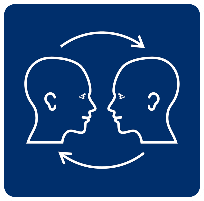Review of AAC Stroke Cases to Identify Common Practice and Consider Outcomes
Session
7.4
Practice Report
-
- Zoë Clarke (Barnsley Assistive Technology Team)
- Marcus Friday (Barnsley Assistive Technology Team)
- Andrea Kirton (Barnsley Assistive Technology Team)
- Vicky Johnson (Barnsley Assistive Technology Team)
- Simon Judge (Barnsley Assistive Technology Team)
Summary
The aim of this paper is to explain how we have been exploring our team’s experiences of the use of VOCAs with stroke survivors.
Method/Activities/Techniques
The Barnsley AT Team had received a number of referrals relating to the use of VOCAs with stroke survivors over the past year. In team meetings there had been discussions about approaches with this group of patients and how to review research in this area. As a team, we identified stroke survivors who had been recently referred and assessed. Each team member wrote up to three case studies; following this, we had a session to describe the cases and to review outcomes.
Results/Findings
The process was highly successful in that, as a team, we generated eleven detailed case studies. The review session enabled description of the cases and what approaches had been tried. This indicated that within the team we had fairly consistent approaches to assessment of this group of patients. It also highlighted that there had been limited success in the introduction of communication aids and potential reasons for this within the specific cases.
Conclusions
The purpose of this process was to learn lessons and share practice to shape future practice. From the eleven patients considered, VOCAs were recommended for two, suggesting that adoption of VOCAs in this group is challenging; other groups have identified similar outcomes. We were able to see common approaches taken to assessing this group of patients. We also were able to identify potential reasons where there had been successful implementation of a communication aid and where there had not. Through this we identified a need to look in more detail at the different types of aphasia and at outcomes for patients within these different types.
Level of Session
General
Age Group
Adult
Interest
Adult





